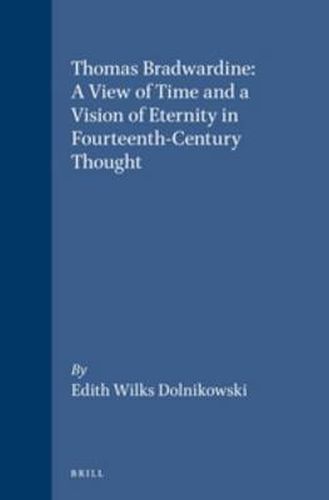Readings Newsletter
Become a Readings Member to make your shopping experience even easier.
Sign in or sign up for free!
You’re not far away from qualifying for FREE standard shipping within Australia
You’ve qualified for FREE standard shipping within Australia
The cart is loading…






This volume evaluates Thomas Bradwardine’s view of time as a mathematical, philosophical and theological concept within the context of ancient and medieval discussions of the problem of time. The book begins with a historiographical analysis of Bradwardine’s mathematical and theological works, followed by an examination of the problem of time in classical, early medieval and 13th-century texts. Next, a series of chapters surveys Bradwardine’s view of time as it related to proportionality, contingency, continuity and predestination. A final chapter establishes Bradwardine’s place among 14th-century natural philosophers and theologians. As it uses a wide range of Bradwardine’s writings, this book is able to show how Bradwardine’s philosophical and theological views converged. This study is especially intended to be of use to historians of late medieval science, philosophy and theology.
$9.00 standard shipping within Australia
FREE standard shipping within Australia for orders over $100.00
Express & International shipping calculated at checkout
This volume evaluates Thomas Bradwardine’s view of time as a mathematical, philosophical and theological concept within the context of ancient and medieval discussions of the problem of time. The book begins with a historiographical analysis of Bradwardine’s mathematical and theological works, followed by an examination of the problem of time in classical, early medieval and 13th-century texts. Next, a series of chapters surveys Bradwardine’s view of time as it related to proportionality, contingency, continuity and predestination. A final chapter establishes Bradwardine’s place among 14th-century natural philosophers and theologians. As it uses a wide range of Bradwardine’s writings, this book is able to show how Bradwardine’s philosophical and theological views converged. This study is especially intended to be of use to historians of late medieval science, philosophy and theology.